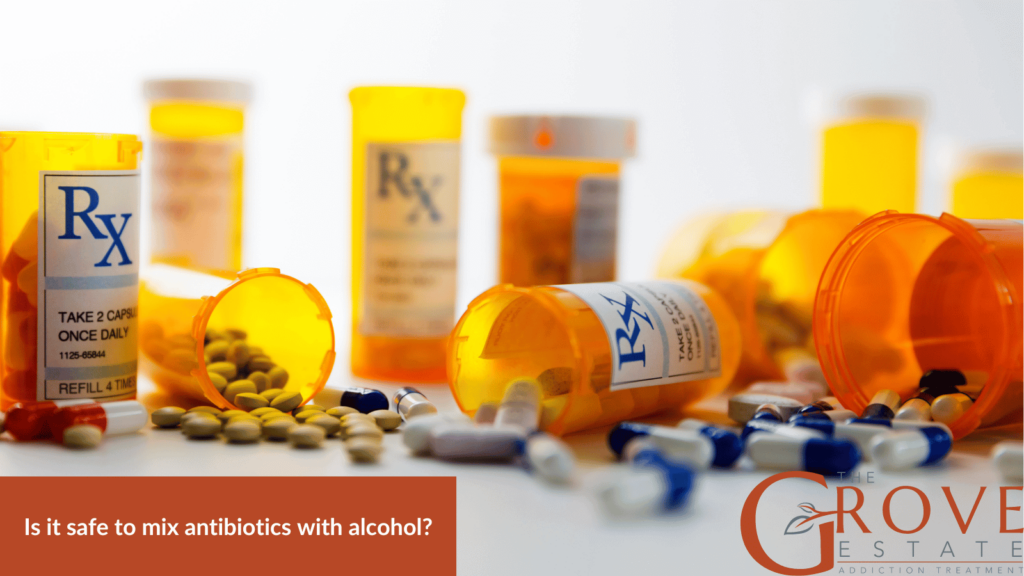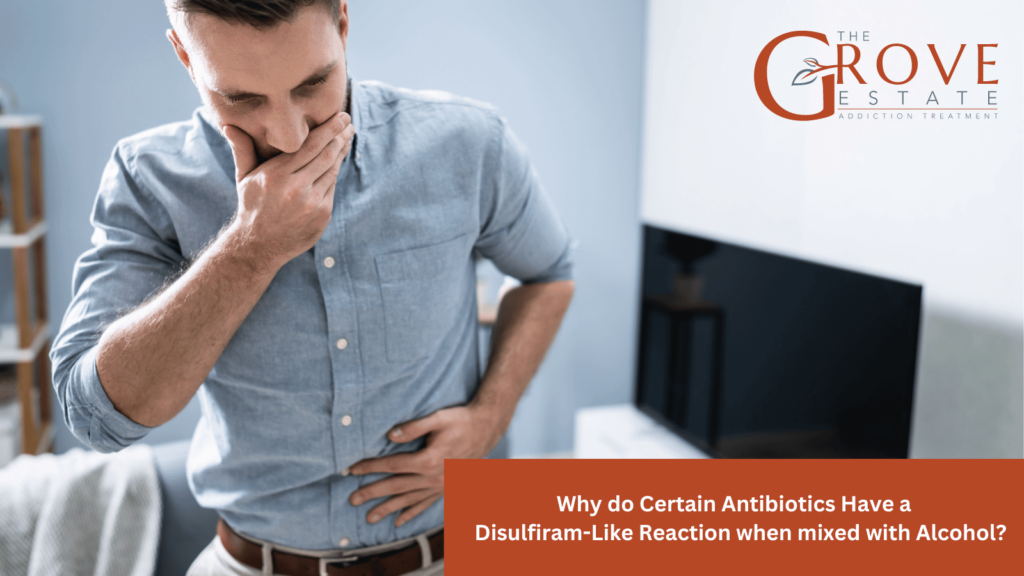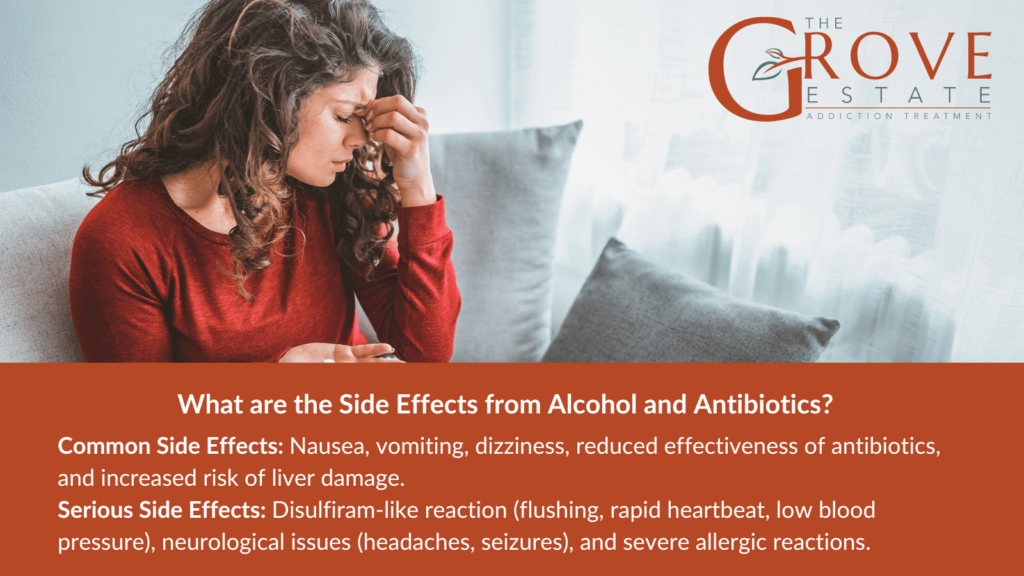Antibiotics are essential for treating bacterial infections, from minor ailments like urinary tract infections to serious diseases like pneumonia. Medical professionals advise against consuming alcohol while taking antibiotics, as it can hinder the body’s ability to combat infection and may amplify the risk of adverse reactions. This warning is emphasized by the fact that alcohol consumption can weaken the immune system and disrupt the effectiveness of antibiotics. According to the World Health Organization (WHO), globally, harmful use of alcohol causes more than 3 million deaths each year, which accounts for 5.3% of all deaths. This widespread misuse of alcohol highlights the substantial health burden that alcohol abuse poses worldwide.

Is it safe to mix antibiotics with alcohol?
It is generally not recommended to mix alcohol with antibiotics. While not all antibiotics interact harmfully with alcohol, certain types can cause severe reactions or side effects when combined with alcohol. Additionally, alcohol can impair the immune system’s effectiveness, potentially reducing the overall effectiveness of the antibiotic treatment and prolonging recovery time. It can also exacerbate the side effects of the antibiotics, such as nausea, dizziness, and drowsiness.
Avoid alcohol consumption with these antibiotics due to the risk of severe reactions:
- Cefoperazone
- Cefotetan
- Metronidazole
- Tinidazole
- Ketoconazole
- Isoniazid
- Linezolid
- Griseofulvin
What are the Risks of Mixing Alcohol and Antibiotics?
Mixing alcohol with antibiotics can lead to various interactions and side effects. While alcohol may not directly reduce the effectiveness of most antibiotics, it can compromise the body’s ability to fight infection and increase the likelihood of experiencing adverse effects. These effects can range from mild to severe, depending on the type of antibiotic and the amount of alcohol consumed.
- Increased Side Effects of Antibiotics: Alcohol can enhance the side effects associated with antibiotics, such as stomach upset, dizziness, and drowsiness.
- Disulfiram-Like Reaction: Certain antibiotics, particularly metronidazole, tinidazole, and some cephalosporins, can cause a disulfiram-like reaction with symptoms including flushing, nausea, vomiting, headache, rapid heart rate, and low blood pressure.
- Liver Stress: Both alcohol and some antibiotics can be hard on the liver. Combining the two can increase the risk of liver damage, especially with antibiotics known to be hepatotoxic.
- Dehydration and Nutrient Depletion: Alcohol is a diuretic, which can lead to or exacerbate dehydration and decrease the absorption of nutrients, both of which are important for recovery from an infection.
- Impaired Immune Function: Alcohol can suppress the immune system, potentially reducing the effectiveness of antibiotics and prolonging the duration of the infection.
- Interference with Medication Efficacy: Although not common, alcohol can interfere with the absorption and metabolism of some antibiotics, potentially reducing their effectiveness in treating the infection.

Why do Certain Antibiotics Have a Disulfiram-Like Reaction when Mixed with Alcohol?
Certain antibiotics can cause a disulfiram-like reaction when mixed with alcohol due to their interference with the normal metabolism of alcohol in the body. Normally, alcohol is metabolized in the liver in two steps: it is first converted into acetaldehyde by the enzyme alcohol dehydrogenase, and then into acetic acid by the enzyme aldehyde dehydrogenase. This process allows alcohol to be broken down and eliminated from the body.
However, some antibiotics can inhibit the action of aldehyde dehydrogenase, the enzyme responsible for converting acetaldehyde into the less harmful acetic acid. When this enzyme is inhibited, acetaldehyde accumulates in the blood, leading to increased levels of acetaldehyde, which is highly toxic and causes the unpleasant symptoms associated with the disulfiram-like reaction.
Antibiotics Known to Cause Disulfiram-Like Reaction
- Metronidazole and Tinidazole: Used for bacterial and protozoal infections, these can cause severe reactions with alcohol.
- Cefotetan and Cefoperazone: Cephalosporin antibiotics that may block acetaldehyde breakdown, leading to similar adverse effects when alcohol is consumed.
The symptoms of this reaction can include flushing, nausea, vomiting, headache, increased heart rate, low blood pressure, and other discomforts, similar to those experienced with a disulfiram (Antabuse) reaction when alcohol is consumed. This adverse interaction serves as a deterrent to drinking alcohol while taking these medications.
Therefore, it is crucial for individuals undergoing antibiotic treatment to abstain from alcohol consumption during the course of treatment and for a few days after completing the antibiotic course. This precaution is necessary to prevent the occurrence of this reaction and ensure the effectiveness of the antibiotic treatment without compromising safety and well-being.

What are the Side Effects and Health Implications from Alcohol and Antibiotics?
Mixing alcohol with antibiotics can lead to a range of side effects and adverse reactions. The extent and severity can vary depending on the specific antibiotic used, the amount of alcohol consumed, and individual health factors. Common side effects may include:
- Common Side Effects: Nausea, vomiting, dizziness, reduced effectiveness of antibiotics, and increased risk of liver damage.
- Serious Side Effects: Disulfiram-like reaction (flushing, rapid heartbeat, low blood pressure), neurological issues (headaches, seizures), and severe allergic reactions.
When to Seek Medical Attention
- Severe Symptoms: Immediate help for difficulty breathing, severe rashes, or loss of consciousness.
- Worsening Effects: Consult a doctor if mild side effects like nausea or dizziness get worse.
- Liver Damage Signs: Yellow skin or eyes, dark urine, extreme fatigue, or persistent vomiting necessitate medical evaluation.
- Antibiotic Ineffectiveness: If the infection worsens or does not improve, seek medical advice.
What is the Impact of Alcohol on Antibiotic Effectiveness?
Alcohol does not directly reduce the efficacy of most antibiotics, but it can interfere with the body’s immune response and the overall healing process in several ways:
- Metabolic Interference: Alcohol can affect how the body processes antibiotics, potentially reducing their effectiveness.
- Immune System Impact: Alcohol weakens the immune system, hindering the body’s infection-fighting capability and the effectiveness of antibiotics.
- Nutrient Absorption: Alcohol’s diuretic effect can lead to nutrient loss, affecting recovery from infections.
Consequences of Reduced Antibiotic Effectiveness
- Longer Illness: Alcohol may prolong the recovery time from infections.
- Complications: Reduced effectiveness of antibiotics can lead to worsened infections or new complications.
- Antibiotic Resistance: Ineffective treatment can contribute to the development of antibiotic-resistant bacteria.
Which Antibiotics Should Not Be Mixed with Alcohol?
It is essential to avoid consuming alcohol while taking antibiotics to ensure the optimal therapeutic outcome and prevent any potential complications or treatment failures. It’s advisable to follow healthcare provider instructions and complete the antibiotic course without alcohol consumption to promote effective recovery and overall health.
Mixing alcohol with antibiotics can lead to various adverse effects, ranging from mild symptoms like nausea to severe conditions like liver disease and cardiac arrest. It is generally advised to avoid or limit alcohol consumption during antibiotic treatment to prevent these effects. Here are the different types of Antibiotics arranged by class and the adverse reactions they have when mixed with alcohol:
| Antibiotic Class | Antibiotic Name(s) | Avoid Alcohol? | Effects of Mixing with Alcohol |
| Tetracyclines | Doxycycline | Yes | Reduced antibiotic effectiveness, nausea |
| Tetracyclines | Minocycline | Yes | Liver disease, nausea, vomiting |
| Oxazolidinones | Linezolid | Yes | Agitation, sweating, fever, altered mental status, vomiting, elevated blood pressure, seizure, coma, cardiac arrest, muscle spasms |
| Sulfonamides | Sulfamethoxazole and Trimethoprim | Yes | Folic acid deficiency, fatigue, nausea |
| Fluoroquinolones | Ciprofloxacin, Levofloxacin, Moxifloxacin | Limit | Attention disturbances, disorientation, memory loss, confusion |
| Nitroimidazole | Metronidazole | Yes | Abdominal cramping, nausea, vomiting, headaches, facial flushing |
How long after taking antibiotics is it safe to drink alcohol?
The safe time frame to drink alcohol after taking antibiotics depends on the specific medication. Some antibiotics may require a waiting period of several hours to several days after completing the course before safely consuming alcohol. It’s important to follow the guidance provided by your healthcare provider or pharmacist.
Can topical antibiotics interact with alcohol consumption?
Topical antibiotics are less likely to interact with alcohol since they are applied externally and absorbed minimally into the bloodstream. However, consuming alcohol can still impair the immune system’s ability to fight infection, so moderation is advisable.
Are there any antibiotics that can actually enhance the intoxicating effects of alcohol?
While not common, some antibiotics may increase the intoxicating effects of alcohol, possibly due to their impact on the liver and metabolism. This can lead to increased drowsiness, confusion, or impairment, even with small amounts of alcohol.
What should you do if you accidentally consume alcohol while on antibiotics?
If you accidentally consume alcohol while taking antibiotics, it’s important to monitor your body for any adverse reactions. While a single, small amount of alcohol may not lead to severe complications with most antibiotics, it can increase the risk of side effects such as nausea, dizziness, and drowsiness. If you experience any severe reactions, seek medical advice promptly.
For further information on managing the risks associated with mixing substances, individuals can explore the interactions between alcohol and Adderall, which similarly emphasizes the importance of being cautious with substance use, especially when under medication. Understanding these interactions can aid in making informed decisions about alcohol consumption while on medication.
Can alcohol delay the healing process even if it doesn’t directly interact with antibiotics?
Yes, consuming alcohol can delay the healing process when taking antibiotics, even in the absence of direct drug interactions. Alcohol can impair the immune system’s effectiveness, making it more challenging for your body to fight off infections. Additionally, alcohol can dehydrate the body, interfere with sleep patterns, and reduce the absorption of essential nutrients, all of which are vital for recovery.
Seeking support from a healthcare professional or an aftercare facility can provide guidance on managing alcohol consumption and understanding its impact on medication efficacy and overall health. These resources can offer support and strategies for individuals looking to balance medication use with lifestyle choices.

Share This Post



